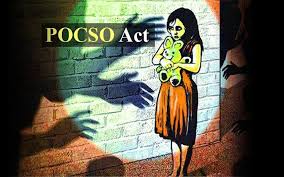Protection of Children from Sexual Offences (POCSO) Act, 2012:

The Supreme Court issued notice in a case where a woman is accused of ‘penetrative sexual assault’ on a minor boy under Section 3 of the POCSO Act, 2012.
- The case has renewed debate on the Act’s gender neutrality, especially whether it covers female perpetrators of child sexual abuse.
- POCSO Act, 2012 was enacted by the Ministry of Women and Child Development to address the heinous crimes of sexual abuse and exploitation of children.
- It was amended in 2019 that increased punishments, including the death penalty for aggravated penetrative sexual assault of a child.
- The Act is gender-neutral and safeguards all children, irrespective of gender.
- It defines a child as any person below 18 years of age.
- The Act covers penetrative and non-penetrative assault, sexual harassment, and pornography. Offences are aggravated if committed by someone in trust or authority or against a mentally ill child, and child trafficking for sexual purposes is also punishable.
- Punishments range from 10 years to life imprisonment for penetrative sexual assault and 20 years to life for aggravated cases, with stricter terms if the child is under 16.
- Use, possession, attempt, and abetment of offences, including child pornography, are also punishable, with fines or imprisonment up to 7 years depending on severity and intent.
- The Act requires Special Courts to try offences. It ensures that the evidence of the child is recorded within 30 days, and the trial is completed within 1 year, wherever possible.
- The POCSO Act has an overriding effect over other laws if there is inconsistency.
- It applies only to child survivors and adult offenders, while cases of child-on-child offences or child-on-adult offences are governed by the Juvenile Justice Act, 2000.




